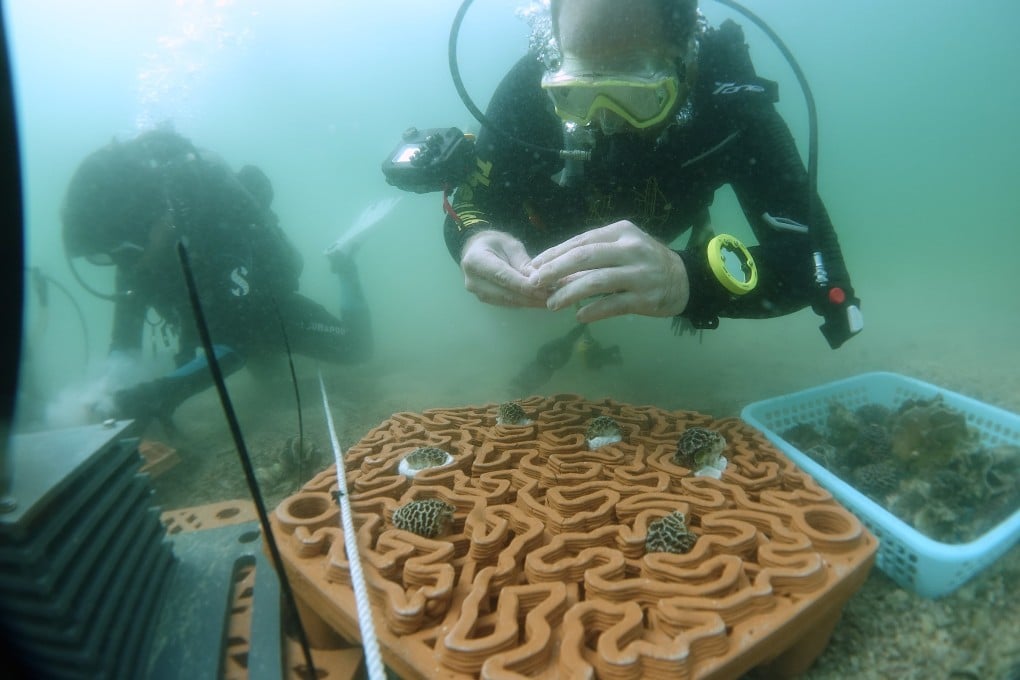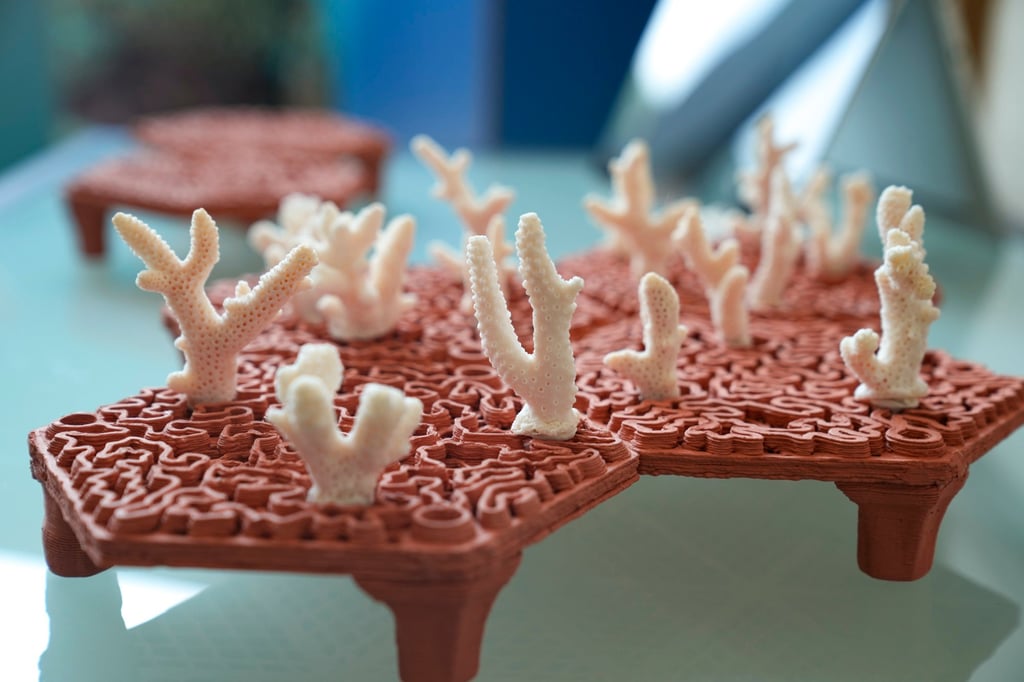Hong Kong start-up archiREEF wants to commercialise 3D-printed tiles, restore corals around the world
- Founded by University of Hong Kong scientists, archiREEF has launched collaborations with Sino Group and Ocean Park
- The start-up will be launching projects in the UAE by the end of this year

Home-grown Hong Kong marine technology start-up archiREEF wants to commercialise and scale up its 3D-printed terracotta reef tiles to restore corals and save degraded marine ecosystems around the world.
After a pilot restoration project with Hong Kong’s Agriculture, Fisheries and Conservation Department in July 2020, which helped to save more than 600 pieces of corals in Hoi Ha Wan Marine Park in Sai Kung, it recently launched a collaboration with Sino Group and Ocean Park, and will be expanding overseas to Abu Dhabi later this year.
“I witnessed a small patch of coral reef disappearing [in Hoi Ha Wan Marine Park] just within two months. That planted a seed in my heart … that climate change is happening. And it is happening a lot faster than I know of, or what I know from books,” said Vriko Yu, archiREEF’s co-founder and CEO.

While coral reefs occupy less than 1 per cent of the ocean floor, they are home to more than 25 per cent of marine life, according to the UN Environment Programme. The value of goods and services provided by coral reefs is estimated at US$2.7 trillion each year, and they support more than 1 billion people, but are among the most vulnerable places in the world to climate change.